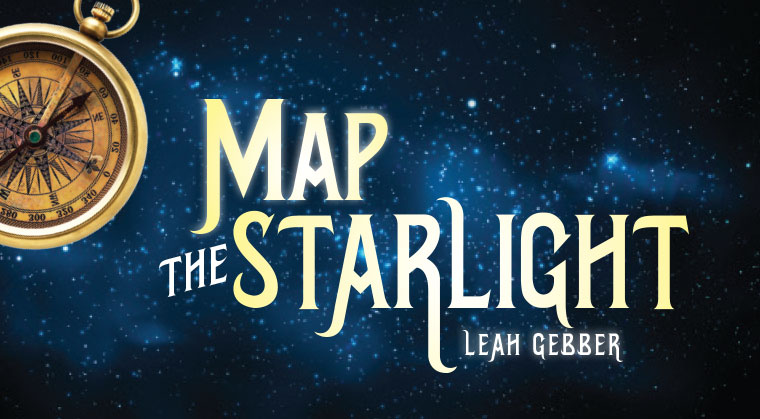Map the Starlight: Chapter 20


T he small dark room is filled with a smell of baking bread and herbs.
It is warm inside and when his eyes adjust to the dim light the man — “call me Grand-Pere ” he tells Neemias — takes his hand and shakes it vigorously. The woman disappears returning a few minutes later with three children and bids them to shake hands.
Neemias squints down. The children — two little boys and a girl — seem so small and he is afraid to shake hands with them lest his own grip hurt them. He gently holds out his hand to each in turn and tries to match each name to a feature. Marie is the girl that’s easy. Paul has a nose covered in freckles. And Roland stands still but he seems to quiver with pent-up energy. How old are they? he wonders. He was always tall and broad for his age maybe these children are small? He thinks that Roland is perhaps 11 Paul may be nine or ten and Marie younger.
Neemias turns to the old man and holds out his silver coin. “I seek shelter from the storm ” he says.
“Bread and bed.” The old man nods as he speaks; his silvery hair touches his shoulders. “Keep the coin in the meantime ” he tells Neemias “and come and help me occupy the chillun through the storm.”
Neemias puts down his load kneels near the fire and calls the children to him.
“Would you like to know where I come from?” he asks. They nod. The words are stilted on his lips but he tells them about a little village and a school with a single window and a friar who comes to fix the roof. When Grand-Pere leaves the room his tongue loosens and he tells the children about sailing along the river Seine and that there’s a place bigger than a farm and bigger than a village and even bigger than a town. It is called a city and that city is called Paris.
The children listen wide-eyed and when the rain begins lashing against the walls and thunder bellows through the sky he teaches them the songs he and Captain and Boy sing when adrift on the waves.
“The world is big and the ocean wide
You’ll never get from side to side
But there’s no place I’d rather be
Than sailing here across the sea.”
Paul and Roland and Marie join in with voices that are narrow and reedy and carry a sparkle of excitement at the thought of conquering the oceans at the thought of the adventures that life may hold.
“In addition to knowing how to read the heavens ” Papa says to Aster pulling volume after thick volume down from the bookshelves “to map a place you have never seen and will never see in your life you need to harvest information from anywhere you might find it.”
The books slam down on top of each other. The pile grows higher: Ptolemy’s Geography and his Tetrabiblos; the travels of Muhammad Ibn Battuta; The Pleasure of Him Who Longs to Cross the Horizons by Muhammad al-Idrisi.
Arabic. Greek. Latin. Hebrew.
Aster blinks. She has always loved to learn but all of this? (Excerpted from Family First Issue 563)
Oops! We could not locate your form.


